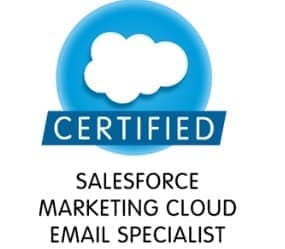- About Us
-
All Courses
-
CS/IT- Programming Language
- Web Development
- Cloud Computing
- AWS Solution Architect Associate
- AWS Solution Architect Professional
- AWS Developer Associate
- AWS DevOps Engineer Professional
- AWS SysOps Administrator – Associate
- Salesforce Admin-201
- Salesforce Advanced Admin-301
- Salesforce Platform Developer – 1
- Salesforce Platform Developer – 2
- Salesforce Marketing Cloud Consultant
- Salesforce Service Cloud Consultant
- Salesforce Sales Cloud Consultant
- Apex & Visual Force Development
- Software Testing
- Automation Testing
- Oracle DBA/Developer
- Microsoft SQL Server
- Mobile Development
- Networking
- < a href=networking.php title=Networking>Networking
- Cisco Certified Network Associate (CCNA)
- Cisco Certified Network Professional (CCNP)
- Cisco Certified Security Professional (CCSP)
- Graphics Designing
Professional Programs
Advance Programs- Microsoft Dynamics
- CRM – Functional – Marketing
- CRM – Functional – Sales
- CRM – Functional – Service
- CRM – Technical – Customization & Configuration
- AX – Functional – Finance
- AX – Functional – Production
- AX – Functional – Trade & Logistics (SCM)
- AX – Technical – AX 2012 DEV I
- AX – Technical – AX 2012 DEV II
- AX – Technical – AX 2012 DEV III
- AX – Technical – AX 2012 DEV IV
- NAV – Technical
- Salesforce
- Digital Marketing Training
- SAP/ERP – Functional
- SAP/ERP – Technical
- SAP/ERP – Functional (SuccessFactors)
- FinancialForce
- Amazon Web Services (AWS)
- CloudCraze
- Pega PRPC
- Microsoft Azure
- Internet Of Things (IoT)
- Microsoft Dynamics
EC/EI/EEE Programs
ME & CIVIL
Management & Quality
-
- Certification
Professional Certifications- ServiceNow Certification
- Salesforce Certifications
- Salesforce Certified Administrator
- Salesforce Advanced Certification 301
- Salesforce Certified Platform Developer I 401
- Salesforce Certified Platform Developer II
- Salesforce Certified Platform AppBuilder
- Salesforce Certified Marketing Cloud Consultant
- Salesforce Certified Sales Cloud Consultant
- Salesforce Certified Service Cloud Consultant
- Hadoop Certifications
- Certifications
- AWS Certifications
- VMware Certification
CS/IT
- Internship
- Career
- Blog
Salesforce Certified Marketing Cloud Consultant

Salesforce Certified Marketing Cloud Consultant Exam :
- Number of Questions: 60
- Item Types: Multiple Choice
- Exam time: 90 Mins.
- Passing score: 68%
- Price: $200 USD
- Retake Fee: USD 100
Syllabus for Salesforce Marketing Cloud Consultant Certification Exam
| Discovery | 13% |
|
|
| Conceptual Design | 12% |
|
|
| Marketing Cloud Connect And Account Configuration | 18% |
|
|
| Reporting And Data Design | 20% |
|
|
| Automation And Email Build | 14% |
|
|
| Contact Builder | 14% |
|
|
| Journey Builder | 11% |
|
|
Drop us a query
Contact us : +919958433899
: +918252167867
Course Features
Real-Life Case Studies
Assignments
Lifetime Access
Expert Support
Global Certification
Job Portal Access


